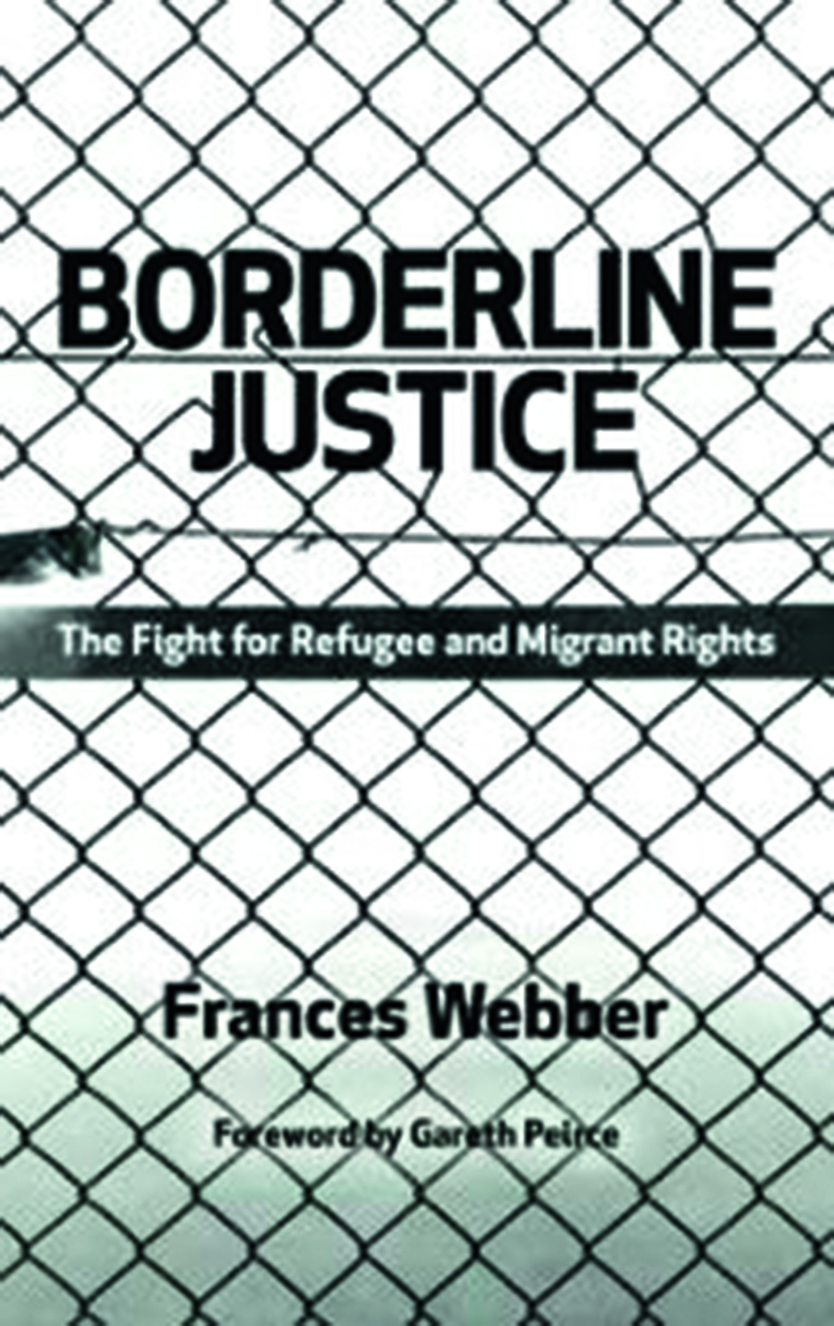*/
 Borderline Justice: The fight for refugee and migrant rights
Borderline Justice: The fight for refugee and migrant rights
by Frances Webber,
Published by Pluto Press, October 2012
ISBN 0745331637
£19.99
Asylum and immigration law was described late last year, by one of its current leading barristers Colin Yeo, as “the hardest and most bitterly fought, most controversial, most convoluted, perhaps most poorly funded and surely most tilted legal battlegrounds between the individual and the state”. Practitioners nodding in agreement would do well to pick up Frances Webber’s lucid, compelling and often angry book.
Formerly a barrister at Garden Court, she was part of a generation of activist lawyers who, since the 1970s, expanded the reach of public and human rights law into an area characterised by ever more restrictive decision-making and regressive politics. Whether battling the “culture of disbelief” in tribunals or arguing points of law before the House of Lords, she maintains that real advocacy means putting “the reality of clients’ lives into focus to judges inevitably insulated by their position of privilege and under political, bureaucratic and time pressure to see cases as purely intellectual exercises”.
It is an account which ranges fluidly from the minutiae of individual cases and immigration rules to the socio-economic trends that are shaping patterns of migration beyond governments’ control. It also serves as warning and manifesto to the present generation of barristers hoping to cope with the legal aid cuts in immigration from April 2013. The fight to ensure migrants can seek economic opportunity or physical protection in the UK has never been more fraught or unfair.
Taimour Lay is a 2nd six pupil at Garden Court Chambers focusing on asylum and immigration. He was a print journalist for eight years covering conflict, corporate abuses and political-economy in Africa.
It is an account which ranges fluidly from the minutiae of individual cases and immigration rules to the socio-economic trends that are shaping patterns of migration beyond governments’ control. It also serves as warning and manifesto to the present generation of barristers hoping to cope with the legal aid cuts in immigration from April 2013. The fight to ensure migrants can seek economic opportunity or physical protection in the UK has never been more fraught or unfair.
Taimour Lay is a 2nd six pupil at Garden Court Chambers focusing on asylum and immigration. He was a print journalist for eight years covering conflict, corporate abuses and political-economy in Africa.
 Borderline Justice: The fight for refugee and migrant rights
Borderline Justice: The fight for refugee and migrant rights
by Frances Webber,
Published by Pluto Press, October 2012
ISBN 0745331637
£19.99
Asylum and immigration law was described late last year, by one of its current leading barristers Colin Yeo, as “the hardest and most bitterly fought, most controversial, most convoluted, perhaps most poorly funded and surely most tilted legal battlegrounds between the individual and the state”. Practitioners nodding in agreement would do well to pick up Frances Webber’s lucid, compelling and often angry book.
Formerly a barrister at Garden Court, she was part of a generation of activist lawyers who, since the 1970s, expanded the reach of public and human rights law into an area characterised by ever more restrictive decision-making and regressive politics. Whether battling the “culture of disbelief” in tribunals or arguing points of law before the House of Lords, she maintains that real advocacy means putting “the reality of clients’ lives into focus to judges inevitably insulated by their position of privilege and under political, bureaucratic and time pressure to see cases as purely intellectual exercises”.


The Bar Council is ready to support a turn to the efficiencies that will make a difference
By Louise Crush of Westgate Wealth Management
Marie Law, Director of Toxicology at AlphaBiolabs, examines the latest ONS data on drug misuse and its implications for toxicology testing in family law cases
An interview with Rob Wagg, CEO of New Park Court Chambers
What meaningful steps can you take in 2026 to advance your legal career? asks Thomas Cowan of St Pauls Chambers
Marie Law, Director of Toxicology at AlphaBiolabs, explains why drugs may appear in test results, despite the donor denying use of them